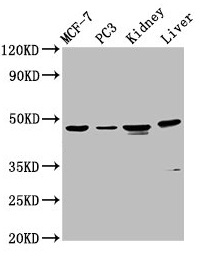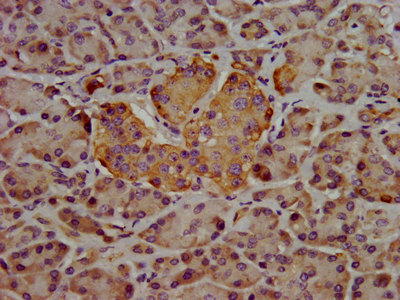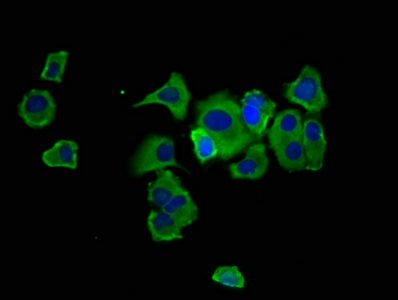The HPN polyclonal antibody is a rabbit antibody that specifically recognizes HPN proteins from human, mouse, and rat samples. Its immunogen is the recombinant human serine protease hepsin protein (294-413aa). It has been validated for use in ELISA, WB, IHC, and IF assays. The antibody has been purified using protein G and has a purity level of over 95%.
Hepsin is a type II transmembrane serine protease that plays a key role in several physiological processes, including the regulation of blood coagulation, cell growth and differentiation, and tumor progression. It is involved in the progression of several types of cancer, including prostate, breast, and ovarian cancer.









